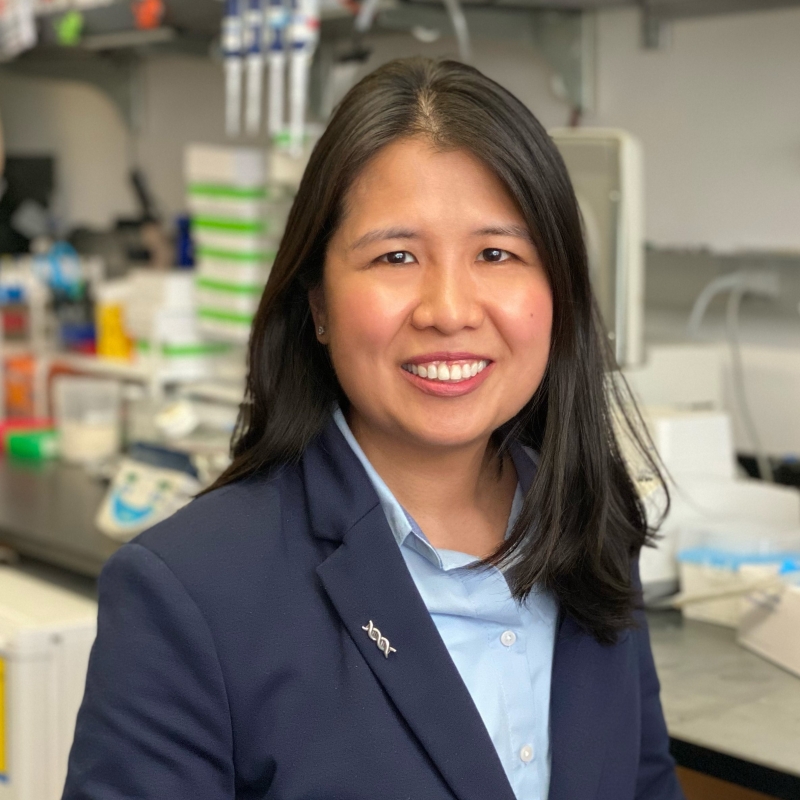OADR-ORWH ScienceTALKS
Date and Time
– April 23, 2024, 2:00 PM EDTVirtual Only.
The purpose of the OADR-ORWH ScienceTALKS series is to examine the state of the science in specific areas impacting research on autoimmune disease and women’s health. This session of ScienceTALKS is focused on Xist research and will bring together experts in the field to generate discussion and identify opportunities to advance Xist research as it pertains to autoimmune diseases.
Target Audience: This session is designed for a scientific audience with an interest in autoimmune disease research. The event is open to the public, but scientific talks may not be tailored for a general audience.
Time | Session |
12:00–12:05 p.m.
| Welcome and Opening Remarks Victoria Shanmugam, MBBS, MRCP, FACR, CCD, Director, NIH Office of Autoimmune Disease Research in the Office of Research on Women’s Health |
12:05–12:35 p.m.
| X-Chromosome Inactivation Mechanisms in Immune Cells Montserrat Anguera, Ph.D., Associate Professor of Epigenetics, Department of Biomedical Sciences, University of Pennsylvania, School of Veterinary Medicine |
12:35–1:05 p.m.
| Xist Ribonucleoproteins Promote Increased Prevalence for Autoimmunity in Females Diana R. Dou, Ph.D., Basic Life Research Scientist and Postdoctoral Scholar, Center for Personal Dynamic Regulomes, Program in Epithelial Biology, Department of Dermatology, Stanford University School of Medicine |
1:05–1:35 p.m.
| Xist lncRNA as a Sex-Specific Reservoir of TLR7 Ligands in Lupus Brendan Antiochos, M.D., Assistant Professor of Rheumatology, Johns Hopkins School of Medicine |
1:35–1:55 p.m.
| Panel Question and Answer Montserrat Anguera, Ph.D., Associate Professor of Epigenetics, Department of Biomedical Sciences, University of Pennsylvania, School of Veterinary Medicine
|
| 1:55–2:00 p.m. | Closing Remarks |

Diana R. Dou, Ph.D.
Diana R. Dou, Ph.D., is currently a National Institute of Arthritis and Musculoskeletal and Skin Diseases (NIAMS) K99 fellow in Dr. Howard Chang’s lab at Stanford University. Prior to Stanford, she earned her B.S. with honors from the California Institute of Technology (Caltech) and double majors in biology and business, economics, and management and received her Ph.D. in molecular biology at the University of California, Los Angeles with Dr. Hanna Mikkola. She was introduced early to RNA biology as an undergraduate researcher studying synthetic modifications and nonviral, nanoparticle-based delivery methods of RNA in Dr. Mark E. Davis’s and Dr. Scott E. Fraser’s labs at Caltech and developed a lasting interest in immune diseases while investigating immune defenses in viral infections as an Intramural Research Training Award (IRTA) postbaccalaureate researcher in Dr. Anthony S. Fauci’s lab at the National Institute of Allergy and Infectious Diseases (NIAMS). In her graduate work with Dr. Mikkola, she sought to understand the developmental patterning of the hematopoietic stem cell (HSC), the multipotent progenitor for the immune system, and showed that medial HOXA cluster gene expression demarcates definitive human HSCs. Dr. Dou is currently investigating the involvement of long noncoding RNAs (lncRNAs) and chromatin accessibility in autoimmune disease and recently discovered a novel role for the Xist ribonucleoprotein (RNP) as a driver for autoimmunity underlying the sex-biased female preponderance for developing autoimmune diseases.
In addition to the NIAMS K99/R00 Pathway to Independence Award, Dr. Dou has been the recipient of the National Science Foundation Graduate Research Fellowship Program, International Society for Experimental Hematology New Investigator Dirk van Bekkum Award, and numerous departmental and institutional trainee awards throughout her career. In her future lab, she plans to continue her research with lncRNA complexes to understand how immune tolerance deteriorates into autoreactivity and disease from a lncRNA and epigenetic gene regulation perspective.

Brendan Antiochos, M.D.
Brendan Antiochos, M.D., is a physician scientist in the Division of Rheumatology at Johns Hopkins School of Medicine. His primary research interest is the role of the innate immune system in the pathogenesis of rhematic disease. It has been known for decades that interferon is upregulated in many of these diseases, including systemic lupus erythematosus (SLE) and Sjogren’s syndrome. Dr. Antiochos is interested in understanding the identity of specific endogenous nucleic acids, and sensor-ligand interactions, that are responsible for eliciting this response.
Dr. Antiochos also has a clinical interest in vasculitis and serves as the director of the Johns Hopkins Vasculitis Center. He received his bachelor’s degree from Dartmouth College and his medical degree from Dartmouth Medical School. He completed his residency in internal medicine at Oregon Health & Science University and his rheumatology fellowship at Johns Hopkins University School of Medicine.

Montserrat Anguera, Ph.D.
Montserrat Anguera, Ph.D., is an associate professor of epigenetics in the department of Biomedical Sciences at the University of Pennsylvania, School of Veterinary Medicine. She is a member of the Epigenetics Institute, the Institute for Immunology, and the Institute for Regenerative Medicine at Penn. She also serves on the executive committees for various graduate groups and training grant programs across Penn.
Professor Anguera received her B.A. from University of California, San Diego in chemistry and her Ph.D. from Cornell University in biochemistry, molecular and cellular biology. Her postgraduate studies were completed at Massachusetts General Hospital/Harvard University, where she developed the interest in X-chromosome inactivation. Her laboratory studies epigenetic gene regulation that underlies sex differences in development and disease. Her current research investigates how gene expression from the X-chromosome is regulated in the immune system, and how these mechanisms become altered in diseases exhibiting a sex bias, such as autoimmunity. Her lab discovered a novel and dynamic mechanism of X-chromosome inactivation maintenance specific to female lymphocyte activation, and how perturbations in these pathways contribute to the autoimmune disorder lupus.
She is currently a member of the Council for the Midwinter’s Conference on Immunology, and the NIH study section on Hypersensitivity, Autoimmune, and Immune-mediated Diseases.
Sign language interpreting services are available upon request. Individuals who need interpreting services and/or other reasonable accommodations to participate in this event should email OADRInfo@nih.gov. Requests should be made at least five business days in advance of the event.
